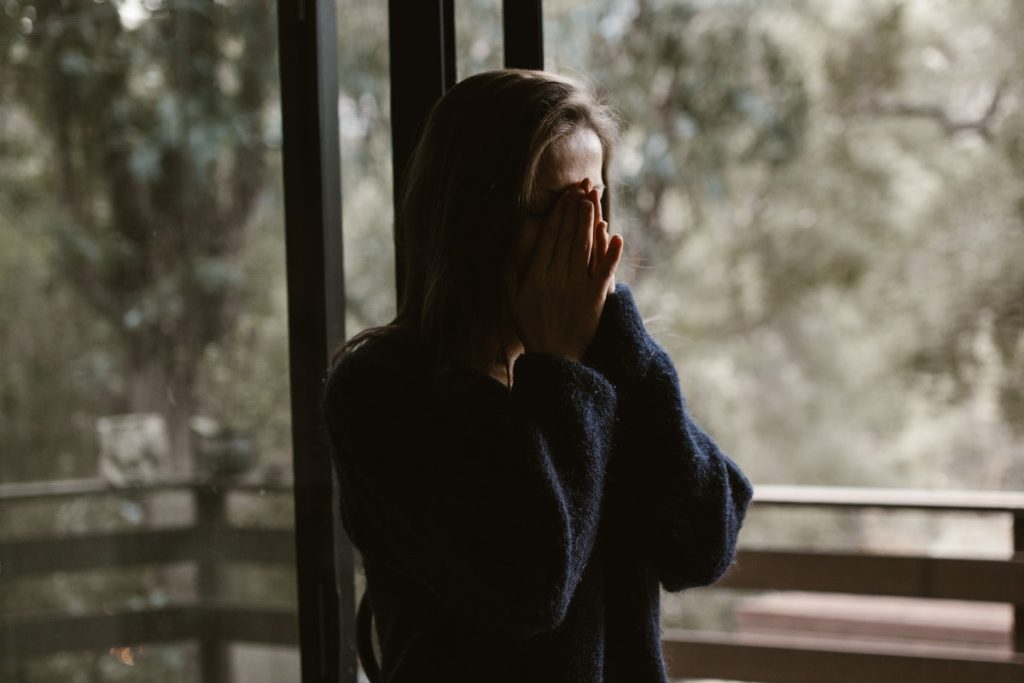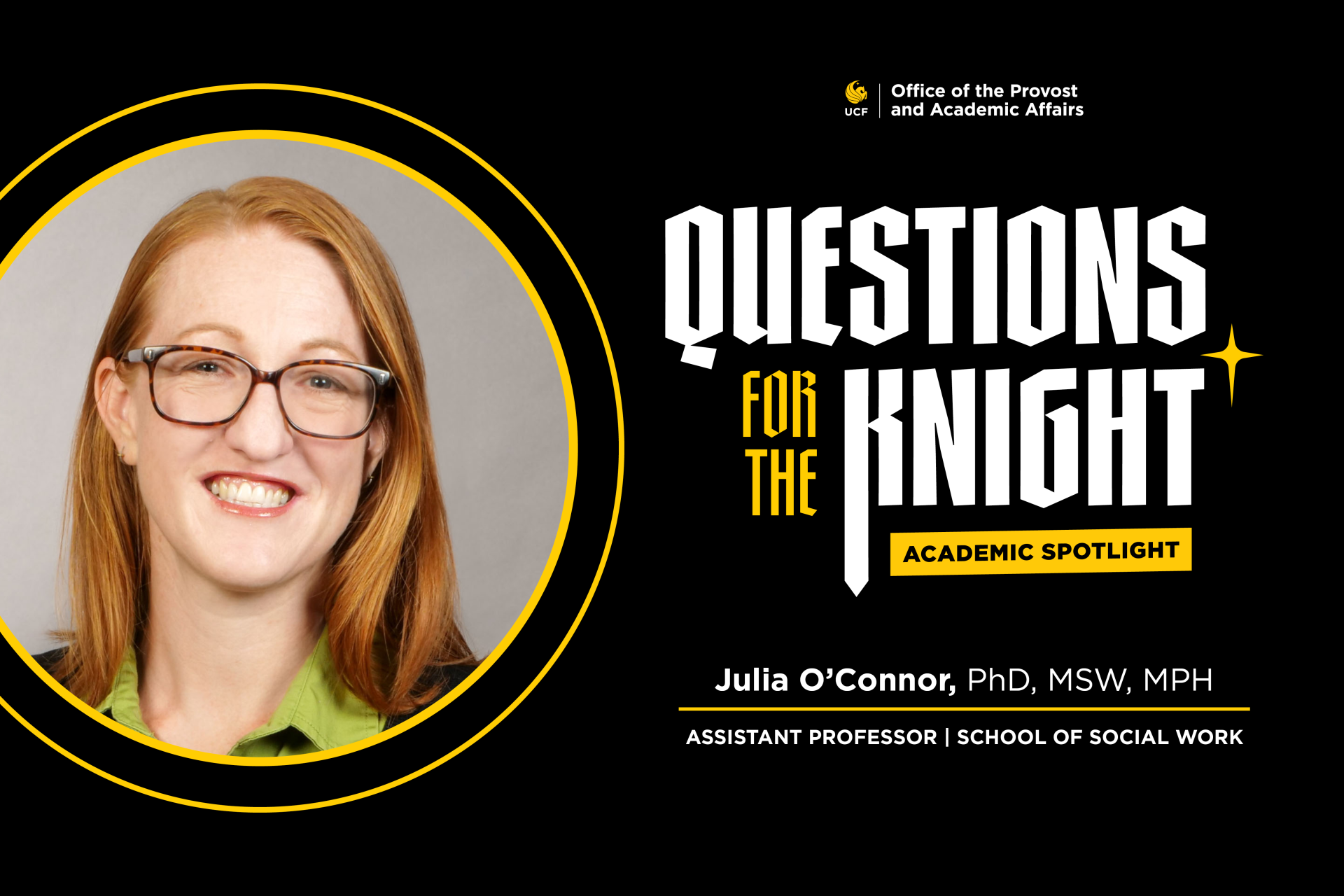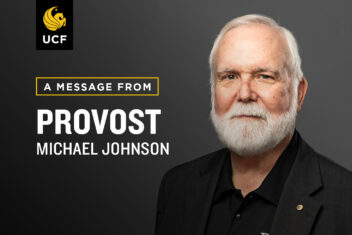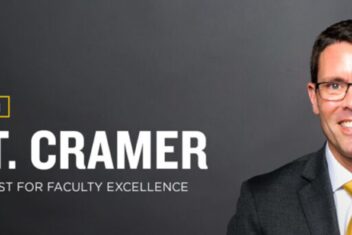As part of Women’s History Month, the Office of the Provost and Academic Affairs honors the women faculty of UCF who dedicate their research, time and passion to advancing the understanding of women’s studies. Dr. Julia O’Connor has spent her professional career exploring interpersonal violence against women and educating her community about it. In this Q&A, she discusses her research aimed at making a difference.
What was the driving force behind your passion to research sexual and domestic violence?
My interest in this area started while I was an undergrad and volunteered at a local domestic violence shelter. Within that setting, I witnessed firsthand the impact of violence on survivors. I also was active at the time in a women’s collective that was trying to change campus policies and procedures around campus sexual violence. We documented and recorded students’ personal stories of sexual violence to demonstrate to the campus administration the scope of the problem. After I finished my undergraduate degree, I went on to work as a legal advocate for survivors of domestic violence within the prosecuting attorney’s office as an AmeriCorps volunteer, followed by work in domestic violence shelters. These experiences were rewarding because I could help individual survivors but made me realize the need to prevent violence before it occurs. Unless we work towards prevention, there will always be a line of survivors needing our help. I now understand that the only way to truly address the issue is to stop violence before it occurs by understanding those who perpetrate violence in order to stem perpetration before it starts.

Have you seen any changes stemming from your research? (I know sometimes there are legislative impacts as it pertains to new laws passed, etc.)
I was part of a research team, as a Ph.D. student, working under the mentorship of Sarah McMahon at Rutgers University (who piloted the White House Task Force to Protect Students from Sexual Assault’s campus climate survey instrument – a survey for students asking them about sexual violence). This instrument was recommended by the task force as a method to understand the extent of campus sexual violence and to encourage administrations to take action and address the issue to create safer campuses. Currently, institutions of higher education often use the survey to conduct campus climate surveys regularly.
How do you think your work will change the outcome of the lives you want to impact?
Ultimately, I am interested in ending violence. This means realistically, in my lifetime, the most we can do is reduce rates of violence for survivors. If violence perpetration rates are reduced, fewer people will be victimized, creating safer communities for all people.
What interesting things have you been looking at lately?
I, along with Dr. Cares in Sociology, and two Ph.D. students at UCF conducted 25 interviews with people who do prevention education on domestic and sexual violence in communities across the USA. We were interested in understanding how these prevention educators, who often do programming in schools and other community-based locations, shifted their work to virtual during Covid. We are still in the process of analyzing that data, but we are learning what worked and what did not for prevention educators who were doing virtual programming, as well as lessons learned about virtual prevention education that can help those in the field continue to educate the community about these issues and work to prevent violence from occurring.
Is there any work you would like to highlight or a quote you’d like to leave us with?
Violence is a serious issue. One-in-three women worldwide will experience domestic or sexual violence within her lifetime. This is an astounding number of survivors and unfortunately, the victims who are killed are often at the hands of their intimate partners. The only true solution to this problem is to prevent violence before it occurs. To do so, we must work together to create safer communities focused on the prevention of harm to all individuals within these communities.


